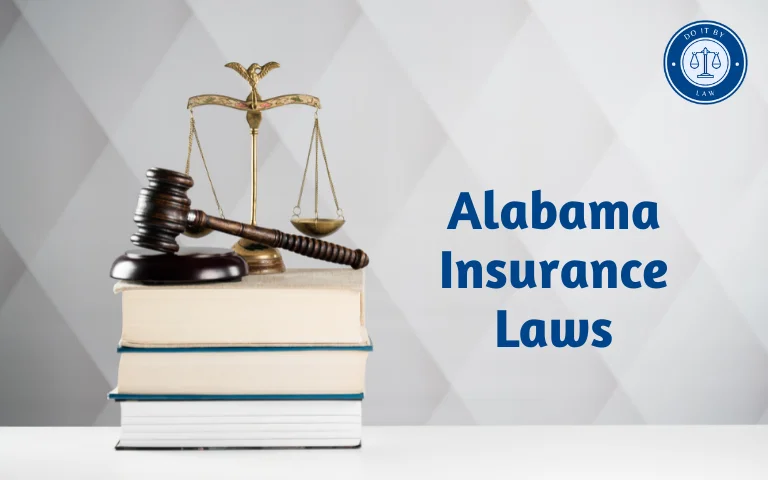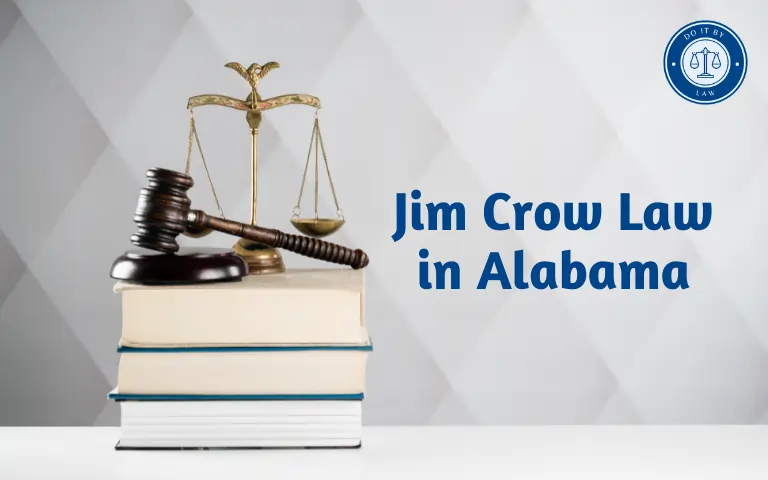Alabama Insurance Laws: What You Need to Know
Insurance regulation in Alabama aims to protect consumers and ensure the financial stability of insurance companies operating in the state. Here’s an overview of key Alabama insurance laws and regulations that apply to auto, health, homeowners, life, and other insurance policies in the state.
Alabama’s insurance industry is regulated by the Alabama Department of Insurance. The Department oversees licensing, examinations, complaints, and investigations related to insurance companies, agents, adjusters, and other insurance professionals. The Commissioner of Insurance heads the Department and has broad regulatory authority granted by state law.
Some of the key Alabama insurance laws include:
Auto Alabama Insurance Laws
Alabama is an “at-fault” auto insurance state, meaning the driver who causes an accident is liable for damages. All drivers in Alabama must carry at least the following minimum auto insurance coverage:
- $25,000 for bodily injury or death to one person
- $50,000 for bodily injury or death to multiple people
- $25,000 for property damage
Drivers are required to show proof of insurance when:
- Registering a vehicle
- Renewing vehicle registration
- Getting pulled over by law enforcement
Penalties for driving without insurance include fines up to $500, license suspension, and impoundment of the vehicle.
Alabama is one of the few states that does not require Personal Injury Protection (PIP) coverage. PIP helps pay for medical expenses for the policyholder and passengers after an accident, regardless of fault. However, Alabama does require uninsured/underinsured motorist coverage unless declined in writing by the insured driver.
Recent changes to Alabama auto insurance laws include increased penalties for texting and driving, as well as loosened restrictions on ride-sharing services like Uber and Lyft.
Health Alabama Insurance Laws
Under the Affordable Care Act (ACA), all Alabama residents must have qualifying health insurance coverage or pay a tax penalty, unless eligible for an exemption. Alabama uses the federally-run health insurance exchange at HealthCare.gov.
As of October 2023, Alabama has not expanded Medicaid eligibility under the ACA. To qualify for Medicaid, Alabama residents must be low-income plus fit into a coverage category like elderly, disabled, or pregnant.
Alabama does not require insurance companies to provide coverage for specific health conditions or treatments. But ACA plans are required to cover essential health benefits like prescriptions, maternity care, mental healthcare, and substance abuse treatment.
There are no laws in Alabama requiring employers to provide health insurance for workers. However, large employers may face tax penalties under the ACA for not offering affordable coverage.
Controversies around Alabama health insurance include abortion restrictions and whether to expand Medicaid. In 2019, Alabama passed a near-total ban on abortions that remains blocked in federal court.
Homeowners Alabama Insurance Laws
Alabama does not mandate homeowners insurance. However, most mortgage lenders require homebuyers to maintain homeowners insurance for the duration of the mortgage.
Standard homeowners policies in Alabama provide liability coverage for injuries or property damage to others, plus coverage for damage to the policyholder’s home and belongings for covered perils like fire, lightning, and windstorms.
Alabama homeowners can purchase additional coverage options like flood insurance, equipment breakdown protection, and water backup or sump pump overflow coverage.
Recent changes to Alabama homeowners insurance include insurers placing stricter limits on credit scoring to determine premiums and eligibility.
Life Alabama Insurance Laws
Alabama does not have any state laws specifically regulating life insurance policies or companies. Most regulation comes at the national level.
All life insurers operating in Alabama must be licensed by the state and are subject to regular financial examinations by the Department of Insurance.
Consumers in Alabama are protected by life insurance laws that:
- Set a contestability period, limiting how long an insurer can dispute a policy after it’s sold
- Establish grace periods protecting policies from early cancellation
- Govern unclaimed life insurance benefits through state escheatment laws
Alabama also has a Life Settlements Act that regulates the secondary market for life insurance policies.
Licensing Alabama Insurance Laws
Alabama has strict licensing requirements for insurance agents, brokers, consultants, agencies, and adjusters looking to conduct business in the state. Specific licenses are required for life/health and property/casualty insurance products.
Agents and agencies must meet initial education, testing, and application requirements. They also need to complete annual continuing education credits to renew their license(s).
The Alabama Department of Insurance website provides resources on license qualifications, costs, reciprocity, and procedures for residents and non-residents. The Department can take disciplinary action against licensees for violations.
Rates & Underwriting Alabama Insurance Laws
For most types of insurance, companies operating in Alabama have rate and form filing requirements. This means insurers must submit their policies, endorsements, applications, and rates to state regulators for approval before use.
Alabama law also restricts insurance underwriting and rating practices. For example, insurers cannot refuse or cancel home and auto policies solely based on geographic location within Alabama. Discrimination based on race, religion, nationality, or disability is also prohibited.
However, insurers can use other risk characteristics like age, gender, credit history, claims history, and mileage when calculating premiums. Rate regulation aims to prevent excessive pricing while maintaining availability and insurer solvency.
Solvency & Market Regulation
To protect policyholders, Alabama monitors the financial health of insurers licensed in the state. Companies must meet solvency requirements and file detailed financial reports annually.
Alabama law also prohibits unfair trade practices. Examples include false advertising, improper claims handling, and anti-competitive behavior. Insurance companies can face fines, license suspension, or revocation for violations.
The Alabama Insurance Underwriting Association provides a market of last resort for homeowners coverage in high-risk areas. The Alabama Insurance Guaranty Association offers protection for policyholders if their insurer becomes insolvent.
Fraud Enforcement Alabama Insurance Laws
Alabama has strong criminal and civil penalties for insurance fraud. Common violations include staged accidents, faking injuries, inflating damage estimates, and filing claims for treatments never performed.
The Alabama Insurance Fraud Unit, under the Office of the Attorney General, investigates fraud cases. Prosecutors can pursue felony charges for major fraud incidents. There is also a fraud warning statement required on all claim forms in Alabama.
Under state law, insurers can independently bring civil lawsuits against individuals who defraud them to recover damages. Healthcare providers are also required to report suspected insurance fraud.
Frequently Asked Questions on Alabama Insurance Laws
Do you have to have car insurance in Alabama?
Yes, all drivers in Alabama must maintain minimum liability auto insurance coverage. Driving without required insurance can result in fines, license suspension, and vehicle impoundment.
What are the car insurance requirements in Alabama?
The minimum liability limits are $25,000 bodily injury per person, $50,000 bodily injury per accident, and $25,000 property damage. Alabama does not require PIP or MedPay coverage but uninsured motorist coverage is mandatory.
Does Alabama require home insurance?
There is no state law mandating home insurance, but most mortgage lenders will require borrowers to maintain a homeowners policy as a condition of the loan.
What does homeowners insurance cover in Alabama?
Standard homeowners policies in Alabama provide property and liability coverage. They cover your dwelling, other structures, and personal property against covered perils like fire, lightning, and theft. Liability insurance pays for injury or property damage to others for which you are legally responsible.
What are Alabama’s health insurance requirements?
Under the Affordable Care Act, Alabama residents must have minimum essential coverage or pay a tax penalty. Employer and marketplace plans must cover essential health benefits. Alabama has not expanded Medicaid eligibility under the ACA.
Does Alabama require life insurance?
No, there is no state law requiring Alabama residents to carry life insurance. However, many lenders require borrowers to get a life insurance policy when taking out a mortgage or business loan.
Who regulates insurance companies in Alabama?
The Alabama Department of Insurance oversees licensing, rates, policy forms, market conduct, and financial solvency for insurance companies and professionals operating in the state. The Commissioner of Insurance heads the Department and enforces insurance laws.
Conclusion
Key takeaways on Alabama insurance regulation include required minimum auto and health insurance coverage, strict agent licensing, filed insurance rates and forms, prohibited unfair practices, mandated coverage benefits, and strong fraud enforcement.
Alabama insurance law aims to maintain affordable insurance availability for consumers while ensuring the financial strength of companies. Oversight by the Department of Insurance focuses on solvency, fair rates, robust competition, and protection against fraud.
For Alabama residents and insurance professionals, it’s important to understand both statewide regulations and federal laws that apply to insurance policies issued in the state. staying up to date on new regulations, compliance procedures, mandatory coverages, penalties for violations, and enforcement practices allows informed insurance decisions.







